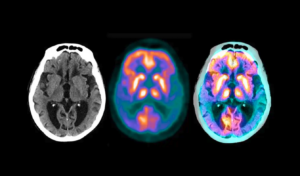Privacy Protection Policy
Client information is private and confidential. Evolve recognizes that clients have a right to have their information protected.
Evolve’s Privacy Protection Policy governs the collection, use and disclosure of personal client information. Specifically, this policy outlines how Evolve complies with provincial and federal regulations governing client information including the Privacy Act and the Personal Information Protection and Electronics Document Act (PIPEDA).
PIPEDA is the privacy legislation of the Canadian federal government as of January 2004. Under PIPEDA no business may collect, use or disclose personal client information without clearly defining the purpose of such collection, use or disclosure and obtaining informed consent. The collection, use or disclosure is limited to purposes that a reasonable person would consider appropriate in the circumstances. The legislation further regulates the protection, retention and destruction of client information. PIPEDA offers clients the right to access their information upon request and challenge the information that is being retained.
The key privacy principles of PIPEDA form the basis of Evolve’s comprehensive Privacy Protection Policy.
Accountability
It is important to safeguard private and confidential client information. Therefore, Evolve’s Chief Compliance Officer has been designated Evolve’s Privacy Officer. The Privacy Officer will confirm compliance with privacy legislation and inform personnel of the need to use the utmost discretion when dealing with client information. The Privacy Officer will monitor and assess the environment of compliance in terms of protection of private client information.
Intended Purpose
Client information is any information that identifies an individual including such items as: an individual’s name, address, age, financial information, social insurance number, personal e-mail address and telephone numbers. Client information may be in paper or electronic form.
Evolve may collect and retain client information for a number of purposes including to: determine a client’s identity, determine eligibility for a product, protect all parties against fraud and potential money laundering, comply with legal requirements (e.g. court order) and communicate with the client.
Evolve will use client information only for the purposes identified at or before the time of collection. Evolve does not sell or rent client information.
Consent
All information concerning unitholder transactions and their accounts are confidential and must not be disclosed to anyone other than the unitholder or her/his dealer unless the intended purpose is disclosed.
Should client information be required for a new purpose, Evolve will take the necessary steps in order to seek additional consent.
Consent may be expressed in writing, orally or implied directly by the client or their registered dealers. In most cases consent is obtained via the subscription agreement process for client investments in funds managed by Evolve. All client information collected by Evolve will be kept confidential and shall not be disclosed to any third party, except for the specific reasons below or if the client has provided express consent.
From time to time, requests for client information may be received from: government agencies; law enforcement agencies; securities commissions; other self-regulatory organizations (SROs); or under a court order. Express consent will not be required if needed for: audit, statistical or record-keeping purposes; a legal reason or request by securities regulatory authority or SRO; to collect a debt owed by the client; to a legal professional for the purposes of obtaining legal advice; and pursuant to a court order. Should Evolve be asked to produce confidential information by any such entity, the Privacy Officer will comply. In some cases, the Privacy Officer may provide information on its own initiative if there are reasonable grounds to believe crime or a violation of securities regulation is involved.
Consent to use personal information may be withdrawn by a client at any time.
Collection
Client information will only be collected as needed for intended purposes. During the course of providing products or services to client, Evolve may collect personal information in several different ways: the website, by telephone, by written correspondence, or by e-mail. The purpose of collection of personal information is for the sole purpose of providing products/services and in order to adequately communicate information.
Upon acceptance of the user agreement on the website, visitors’ information is collected for the purpose of answering inquiries, providing marketing materials, corporate background and invite guests to access services.
Website information is collected in many forms including by obtaining the domain name of visitors, the email addresses and personal information that is volunteered, dealer information and geographic location. Evolve’s website may employ a standard technology to collect information about how the firm’s site is used for the purposes of improving website design.
Evolve does not transfer collected information to competitors. Website guests may occasionally receive emails from Evolve informing them of products and services.
Use, Disclosure and Retention
Client information will only be used for the purposes for which it was collected.
Evolve may share client information with authorities for regulatory or tax reporting purposes. Information may also be shared with SROs and legal bodies for reasons previously discussed.
Client information may also be shared with external service providers to Evolve and its products. Service providers include, but are not limited to: auditors, valuation agents, back office support, registrar and transfer agents and legal counsel. These service provider relationships are governed by agreements that confirm the proper handling and protection of client information.
Client information will only be retained for as long as needed in order to satisfy the stated purposes at the time of collection. When the information is no longer required necessary measures will be taken to destroy, dispose of, or delete the information.
Accuracy
It is important for Evolve to keep client information accurate in order to provide quality service and minimize the potential for misuse.
Evolve strives to keep client information correct, complete and up-to-date. Clients may be contacted periodically to ensure information is accurate on file.
Clients are requested to advise Evolve of any changes to client information, as Evolve is not liable for errors that cannot be corrected without client input. Should an inaccuracy be found, Evolve will act efficiently to correct it at no cost to the client.
Safeguards
Evolve has implemented various processes to safeguard personal information and restrict access to private information to personnel who need to know the information in order to service clients. Security measures include passwords on networks and systems and restricted access to the offices, and records within the offices.
Employees should be mindful to ensure that unitholder information is protected. Generally speaking, employees are not to disclose to other employees who do not have a legitimate need for the client information. In particular, all information and materials that employees access must be kept confidential, even after employment has ended. Annually, each of Evolve’s employees is required to attest to compliance with Evolve’s policies including the Privacy Protection Policy.
Note on Media: employees are not to communicate with the media – all media inquiries must be directed to Keith Crone.
Directness
Evolve makes every effort to explain policies and procedures to clients and explain how client information is managed. Evolve’s Privacy Protection Policy will be provided upon request by e-mail or phone. Also, a copy can be found on Evolve’s website. If clients have additional questions they may contact the Privacy Officer for clarification.
Access
Clients have a right to their personal information. Clients have the right to verify the accuracy and completeness of their personal information, and may request that it be amended. Upon request (in writing) with appropriate supporting documentation confirming identity, clients will be given their client files.
Under certain circumstances Evolve may not be able to provide clients with access to specific pieces of information. For example, clients will not be granted access to information containing references to other persons or that has proprietary information confidential to the firm. Also, access will not be provided to information that has been destroyed or is too costly to retrieve.
The Privacy Officer will respond to requests for access in writing within 30 days of receipt.
Complaint Process
Inquiries and complaints will be reviewed by the Privacy Officer and dealt with in a timely fashion. Specifics steps of Evolve’s privacy complaint recourse process are:
- All complaints are directed to the Privacy Officer who will maintain a detailed file on the complaint.
- The complainant will be notified of receipt of the complaint. All other applicable parties will be provided notice as well.
- The Privacy Officer will conduct an investigation to gather all necessary facts pertaining to the complaint.
- Following the investigation, the Privacy Officer will make a determination that either no other remedy than a clear explanation to the client is warranted or that the complaint is substantiated and as such, specific action is required. Some examples of specific recourse include implementing additional safeguards, employee training and documentation revision.
- The client will be advised of the decision in writing with details of the findings and subsequent recourse action, if any. Where applicable, a formal apology will be issued by Evolve or a third party for the mishandling of client information.
Clients who remain dissatisfied with the results can bring the complaint to the attention of the federal Privacy Commissioner who is the ombudsperson for complaints under PIPEDA at:
Officer of the Privacy Commissioner
112 Kent Street, Place de Ville, Tower B, 3rd Floor, Ottawa, Ontario K1A 1H3
The request must be made in writing and include full contact details and as much detail as possible about the complaint.
Evolve’s Privacy Protection Policy is intended to provide clients with comfort that their personal information is handled with the utmost importance and care.
Evolve is continually balancing clients’ right to privacy with the needs of the business and therefore, welcome any feedback on how privacy protection policies and procedures can be improved.
Other Information
The Personal Information Protection and Electronic Document Act website:
https://www.priv.gc.ca/en/privacy-topics/privacy-laws-in-canada/the-personal-information-protection-and-electronic-documents-act-pipeda/
Website
This privacy policy sets out the information gathering and dissemination practices of Evolve Group Inc. (“Evolve ETFs”) in the use of the evolveetfs.com website. By using the website, you are consenting to this privacy policy and the collection, use and disclosure of your personal information by Evolve as outlined in this privacy policy. If this privacy policy is not acceptable to you, please do not submit any of your personal information. We may update this privacy policy from time to time and you are responsible for periodically reviewing the most current version of this privacy policy on the Website. Your continued use of the Website or submission of Collecting, Using and Disclosing Information. This privacy policy describes our policies regarding the collection, use and disclosure of the personal information that we (or our Service Providers on our behalf) collect about you on the Website such as your name, address, phone number, fax number, e-mail address or payment information. We may collect this information when you subscribe to, or sign your company up for, certain services, tools or features that we provide, when you register for seminars or other programs that we offer, when you fill out forms made available through the Website, when you enter a promotion or contest, when you complete a survey, when you e-mail us with general inquiries or with your comments or suggestions, or otherwise in connection with your use of the Website. We will limit the personal information we collect to what we need for the purposes for which it was collected, and will use such personal information for such purposes. We may also use personal information we collect to provide you with information on products, services and events that we or third parties offer that we believe may be of interest to you. If we wish to use your personal information for any other purpose, we will obtain your consent before using the information.
Storing of Information and Restricting Access
We may store your personal information (in encrypted form where we believe it to be highly sensitive) in electronic databases or e-mail boxes hosted by us or our Service Providers, for periods of time and with safeguards that we believe are reasonable depending on the nature and sensitivity of the information. Access to the information is restricted in accordance with our security protocols.
Due to the nature of Internet communications and evolving technologies, Evolve cannot provide assurance that the personal information we collect will remain free from loss, interception, misuse or alteration by third parties and Evolve shall have no liability for any loss, interception, misuse or alteration.
Automatic Collection of Information
In some cases, we may collect information about you that is not personally-identifiable. Examples of this type of information include your Internet protocol (IP) address, the type of Internet browser you are using, the type of computer operating system you are using, and the advertisement or domain name of the website from which you linked to the Website.
Cookies
Some pages on the Website use a technology called “cookies”. A cookie is a token that a server gives to your browser when you access a website. Cookies are capable of storing many types of data. Cookies may be placed by Evolve or a third party. Cookies help provide additional functionality to the Website or help provide and analyze Website traffic and usage information. For instance, our server may set a cookie that keeps you from having to enter a password more than once during a visit to one of the Website. In all cases in which cookies are used, we will not collect personally-identifiable information except with your permission. With most Internet browsers, you can erase cookies from your computer hard drive, block all cookies, or receive a warning before a cookie is stored. Please refer to your browser instructions or help screen to learn more about these functions.
Releasing Information
We may provide your personal information to other persons but only if: we have your consent; we provide the information to Service Providers who assist us in serving you and who have agreed to appropriate contractual provisions regarding the protection of personal information in accordance with applicable law; or we are required to do so by law, regulation or court order. We may send your personal information outside of the country for the purposes set out herein, including for process and storage by Service Providers in connection with such purposes, and you should note that while such information is out of the country, it is subject to the laws of the country in which it is held, and may be subject to disclosure to the governments, courts or law enforcement or regulatory agencies of such other country, pursuant to the laws of such country.
Respecting and Responding to Your Privacy Concerns
You have the option to refuse or withdraw consent to the collection, use and disclosure of your personal information, and we will respect your choices. If you wish to exercise this option or if you have any questions or enquiries with respect to our privacy policies or procedures, please send a written request to: info@evolveetfs.com. We will investigate and respond to your concerns about any aspect of our handling of your information. If you wish to edit and/or delete your information related to the tool features on our Website (including changing your settings such that you no longer receive Alerts), you may do so online through the Tools section on evolveetfs.com
Disclaimer
The content on this Website and any communications from Evolve is provided for informational purposes only and is not intended to provide financial, legal, accounting or tax advice and should not be relied upon in that regard. You should not act or rely on the content on this Website without first seeking the advice of appropriate professional advisors.
BY USING THE WEBSITE, YOU ACKNOWLEDGE THAT YOU HAVE READ THIS PRIVACY POLICY, UNDERSTAND IT AND AGREE TO ALL OF THE TERMS AND CONDITIONS IN THIS PRIVACY POLICY AND DISCLAIMER.



